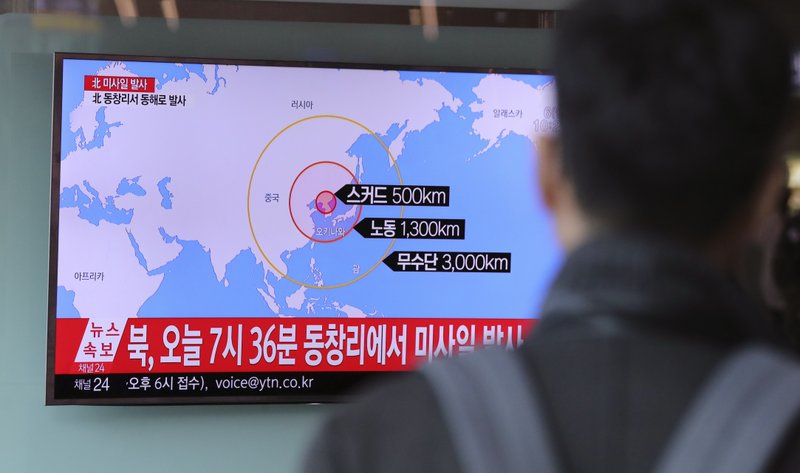SEOUL, South Korea -- North Korea today fired four banned ballistic missiles that flew about 620 miles, with three of them landing in Japan's exclusive economic zone, South Korean and Japanese officials said.
It was not immediately clear the exact type of missile fired; Pyongyang has staged a series of missile test-launches of various ranges in recent months, including a new intermediate-range missile in February. The ramped-up tests come as leader Kim Jong Un pushes for a nuclear and missile program that can deter what he calls U.S. and South Korean hostility toward the North.
U.S. national security adviser H.R. McMaster and senior South Korean presidential official Kim Kwan-jin held a phone conversation after the missile firings. The two condemned the launches and agreed to boost cooperation to get the North to face more effective sanctions and pressures, according to South Korea's presidential office.
Japanese Prime Minister Shinzo Abe said today's firing shows that North Korea has become "a new kind of threat." Japanese officials said three of the four missiles landed in the 200-nautical-mile offshore area where Tokyo has sovereign rights for exploring resources.
South Korea's Joint Chiefs of Staff said in a statement that today's launches were made from the Tongchang-ri area in North Pyongan province. The area is the home of the North's Seohae Satellite Station where it has conducted prohibited long-range rocket launches in recent years.
Seoul and Washington call their military drills on the Korean Peninsula, which remains in a technical state of war because the 1950-53 Korean War ended with an armistice and not a peace treaty, defensive and routine.
The North hates the military drills, which run until late April and which analysts say force its impoverished military to respond with expensive deployments and drills of its own. An unidentified spokesman for the North's General Staff of the Korean People's Army said last week that Pyongyang's reaction to the southern drills would be the toughest ever but didn't elaborate.
North Korea conducted two nuclear tests last year.
A Section on 03/06/2017
